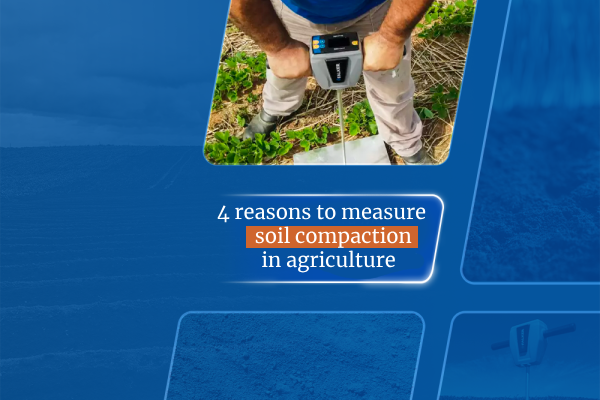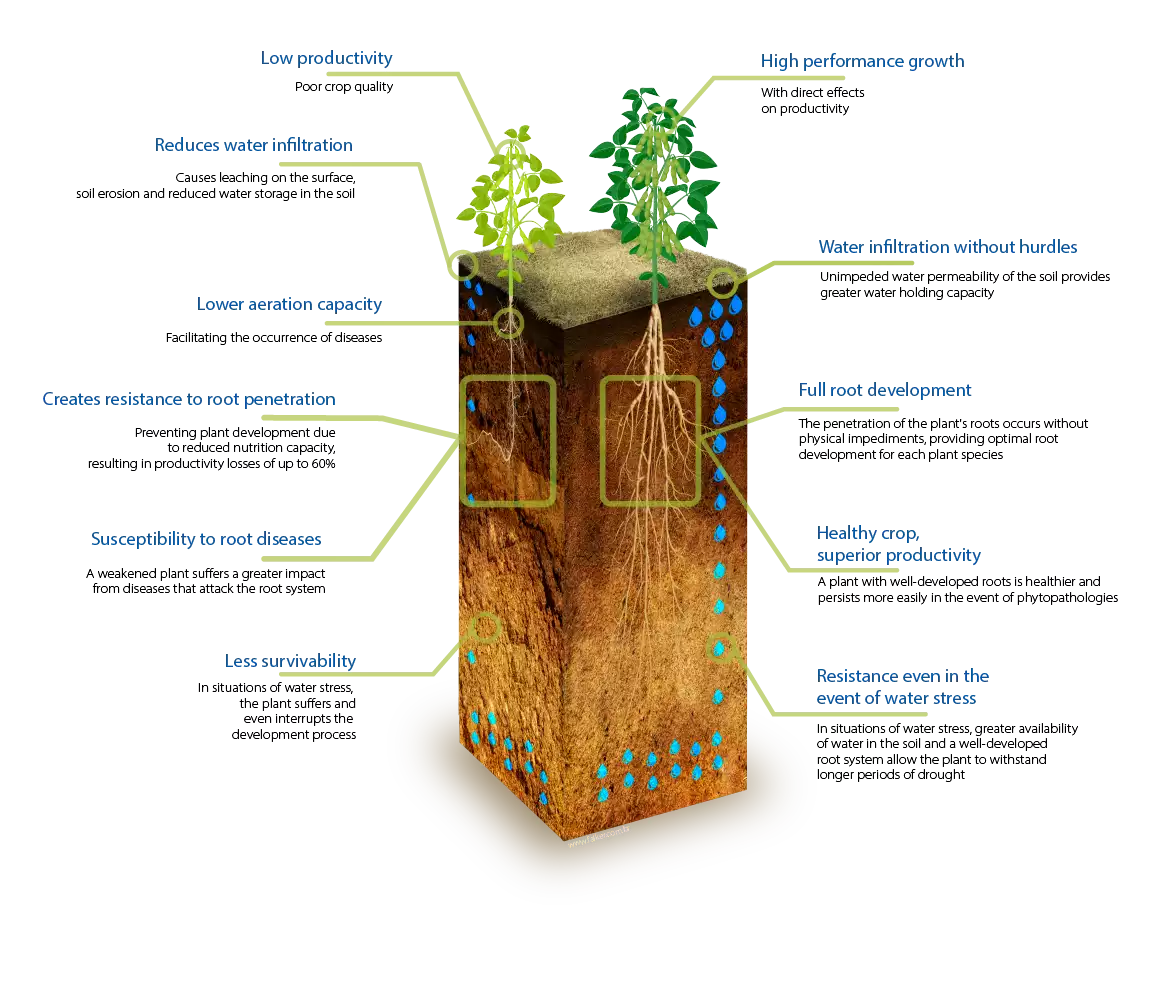Periodically monitoring the agricultural soil allows agronomists to locate and recognize compaction problems and then propose more assertive management strategies.

It is no news to most producers that soil compaction is harmful to crop development and productivity. But many still wonder: what is gained by measuring soil compaction?
To answer this question, we have prepared this straight-to-the-point article with four reasons to keep a close eye on your crop’s soil. After all, is it where the roots develop and nourish the plants - or not. Poorly nourished plants mean productivity loss.
So, write it down:
1) Work with concrete data on soil compaction
There are many ways to evaluate the compaction in the field, from digging a trench to using measuring equipment. However, some producers only have the impression that the soil is “hard”.
Do not rely on suspects or impressions; work with numbers and registers to compare compaction between different areas and its evolution over time. Decisions based on concrete data - not just impressions - are those that bring better results.
2) Identify where is at the compaction problem
When the measurement is made using electronic soil compaction meters, it is practical to measure at different regions of the crop and get to know how the compaction is distributed. The actions to be carried out can be quite distinct if soil compaction issues occurs across the entire area or only in isolated points.
For those who work with precision agriculture, it is also possible to generate compaction soil maps to compare with other area maps, such as the productivity and fertility ones.
3) Know the depth of the compacted soil layer
Knowing the depth of soil compaction determines the type of action to be taken, and often indicates the origin of it. The impact on the culture will be very different if, for example, the compacted layer is at 15 or 30 centimeters. In these cases, the actions to be done are also different.
Analysis with electronic compaction meters allows to trace every centimeter of the soil profile, not only indicating the problem’s intensity but its depth.
4) Soil compaction affects irrigation efficiency
In general, compaction limits the soil’s ability to retain water, which is harmful for irrigated or rainfed crops. The irrigated areas end up suffering extra impact, as they typically are more used and have machine traffic with high soil moisture.
The system as whole suffers when an irrigated area is compacted, as the soil will have less water retention capacity than intended. Consequently, there may be a lack of water in layers below the compacted zone and excess in the surface ones.
Compacted vs. Uncompacted Soil: How Do They Affect Crop Production?







